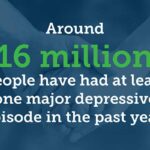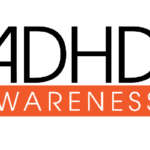Common Questions and Myths About ADHD
Attention-deficit/hyperactivity disorder (ADHD) is a developmental disorder marked by persistent symptoms of inattention, hyperactivity, and impulsivity. While there is no cure for ADHD, treatment can help reduce symptoms and improve everyday functioning for children and adults with ADHD.

Undiagnosed ADHD Affects Children and Adults
Many adults grapple with feelings of inadequacy, low self-esteem, relationship challenges, anxiety, depression, and other distressing emotions for years, unaware that undiagnosed ADHD might be the underlying cause. It’s essential to obtain a comprehensive evaluation to understand the roots of such issues, as accurate diagnosis can pave the way for effective management and improved quality of life.
ADHD is a neurodevelopmental disorder affecting both children and adults. It is described as a “persistent” or ongoing pattern of inattention and/or hyperactivity-impulsivity that gets in the way of daily life or typical development.
Can Someone With ADHD Be Successful In Life?
Absolutely!
Individuals with ADHD can achieve significant success in life, oftentimes harnessing their unique traits in creative ways. Many successful personalities have either been diagnosed with ADHD or have exhibited traits consistent with the condition.
Take, for instance, Sir Richard Branson, founder of the Virgin Group, who has been open about his ADHD diagnosis and credits his entrepreneurial success in part to the out-of-the-box thinking that often accompanies ADHD.
Simone Biles, world champion gymnast, was diagnosed with ADHD as a child. Michael Phelps, the most decorated Olympian of all time was diagnosed with ADHD in the 6th grade.
Articles Related To ADHD
Can There Be Advantages To Having ADHD?
Brains with ADHD work differently, but not all of these differences are negative. In fact, these differences often present strengths rather than just challenges! Here are some examples of some common ADHD attributes and how they can benefit people with ADHD.
- Ability to think outside the box and come up with innovative ideas
- Many people with ADHD have high energy levels, enabling them to tackle tasks with enthusiasm and endurance. Remember, there are countless elite athletes with ADHD!
- People with ADHD can be talkative and fascinating conversationalists, as they bring unique perspectives and can have a great sense of humor
- People with ADHD may be more compassionate and care about others, a highly desirable trait in interpersonal and professional relationships
- Reslience built from navigating challenges, as they have practiced recovering from setbacks more often than other individuals
- Hyperfocused intensity that can be channeled into passion projects
- People with ADHD report more real-world creative achievements, particularly in goal-directed pursuits
These traits, when recognized and guided appropriately, can drive an individual with ADHD to achieve tremendous accomplishments in their chosen field. In fact, many people believe that the unique perspective and energy of someone with ADHD can be a significant asset, leading to out-of-the-box thinking, heightened creativity, and relentless determination.
Historically, many accomplished individuals in arts, sciences, sports, and entrepreneurship have shown characteristics consistent with ADHD, demonstrating that when channeled constructively, these attributes can be transformative and groundbreaking.
Is ADHD Real?
For centuries, doctors have recognized ADHD. In a book from 1775, Adam Weikard wrote about people who had symptoms like ADHD. Since then, scientists have done over 10,000 studies about it. One study by Roberts in 2015 showed that the brains of people with ADHD are different from others. It’s not just a childhood issue, either; many adults have ADHD too. It can make school, work, and friendships harder. Plus, it tends to run in families. If your parent has ADHD, there’s a good chance you might have it too. Brain scans even show differences in people with ADHD. So, it’s important to remember that ADHD is real, and many people live with it every day.
Is ADHD Only a Childhood Condition?
ADHD isn’t just something kids have. However, symptoms do begin in childhood and can interfere with daily life, including social relationships and school or work performance.
Research shows that many children with ADHD continue to have it as teenagers and even adults.
In fact, 50% to 80% of kids with ADHD still have symptoms when they’re teens, and 35% to 65% have them as adults (Owens et al. 2015). One study found that 77% of boys diagnosed with ADHD still had signs of it 16 years later (Biederman et al. 2012). Another study showed that girls with ADHD as kids faced more challenges 10 years later, including emotional struggles and higher chances of hurting themselves, compared to girls without ADHD (Hinshaw et al. 2012).
So, ADHD isn’t just a “kid thing”. Many adults live with it too.
ADHD Is Overdiagnosed: True or False?
Lately, there’s been talk about ADHD diagnoses increasing. Some think it’s being diagnosed too much, but that’s not the full story. Yes, more people are getting diagnosed, but it’s mainly because we know more about ADHD now. Here’s why:
- People are more aware of ADHD today.
- We have better tools to spot it.
- We’re understanding that not just boys, but girls and adults can have ADHD too.
- There are more pressures on kids these days, which may highlight ADHD symptoms.
- Sometimes, other issues like depression or anxiety can look like ADHD, which has the potential to lead to mistakes in diagnosis.
A big reason for the rise in ADHD awareness came in the 1990s. The U.S. government made a rule that students with ADHD could get extra help in school. Also, new ADHD medicines were advertised, so more people learned about it. Around the same time, researchers found that ADHD wasn’t just a kid thing – adults could have it too.
ADHD has a range; some have mild symptoms and others have more challenges. The key is, to get diagnosed, these symptoms must really get in the way of daily life.
Why is ADHD Awareness Important?
ADHD is one of the most common neurodevelopmental disorders. Raising awareness about ADHD helps clear up misconceptions and ensures that those with ADHD receive the understanding they need, can find treatment, and achieve all they’re capable of.
Our Experienced Team of Psychiatrists Can Help!
We know that taking the first step can be difficult.
Our highly-trained psychiatrists and therapists offer a comprehensive and confidential approach to private, outpatient psychiatric care. Whether this is your first time seeking psychiatric care or if you are seeking a new provider, Novum Psychiatry can help. In-person and telehealth appointments available. We accept health insurance.






